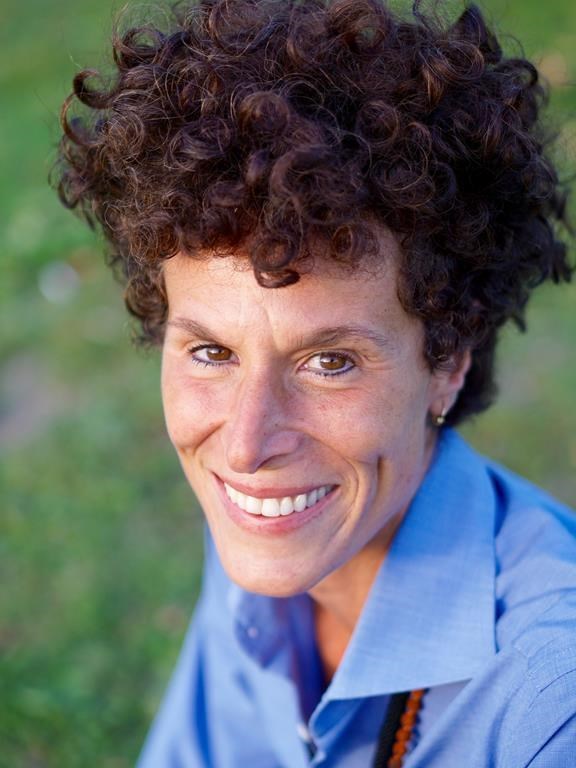TORONTO — Her story has been told through lawyers, journalists and activists casting her as the woman who brought down Bill Cosby.
But after roughly 15 years of her speech being constrained for legal reasons related to her sexual assault claim against the famed comedian, Andrea Constand is telling her story on her own terms.
It's a story the Canadian says is interwoven with those of dozens of other women who have come forward with allegations against the star once known as "America's dad" in a public reckoning that some observers have called a precursor to the #MeToo movement.
Constand says sharing her story in her new memoir has also helped her find "closure" as she turns her attention toward helping sexual violence survivors who are suffering in silence.
"I think sharing my story serves as an example that you can find your voice and you can heal," Constand, 48, says by phone from Mulmur, Ont.
"There's other people out there that want to hear your story. They want to know how to heal."
"The Moment," which hit shelves Tuesday, tracks Constand's trajectory from her idyllic Toronto childhood, through her burgeoning career as a basketball player, to crossing paths with Cosby as a sports administrator at Temple University.
Constand recounts the night in January 2004 when she says Cosby gave her three blue pills and penetrated her with his fingers as she lay immobilized in his Philadelphia home.
She writes about the turmoil and torment of revisiting that trauma over and over again while participating in various legal proceedings against Cosby, who has consistently maintained his innocence.
From her 2005 civil suit against the former star of "The Cosby Show," to the 2017 criminal case that ended with a hung jury, and the 2018 retrial that saw Cosby sent to prison for nearly three years, Constand says she's been guided by a simple mission: to tell the truth.
She believes the public acknowledgment of her account still stands even after Pennsylvania's highest court overturned Cosby's sexual assault conviction this summer.
"I felt that the jury heard me, they acknowledged me, and they made Bill Cosby accountable for what he did to me," says Constand.
"It doesn't change anything (about) that moment.... And in my spirit, I've claimed that moment."
Cosby is regarded as the first celebrity tried and convicted in the #MeToo era, and Constand worries about the message his release from jail sends to sexual violence survivors about their chances in court.
"It denies them the hope that they will get justice in the end."
Constand says the only way to bolster faith in the justice system is to close the legal loopholes that favour the rich and powerful, such as the "backroom deal" that she says allowed Cosby to walk free.
The Pennsylvania Supreme Court ruled in June that the prosecutor who brought the case against Cosby was bound by his predecessor's promise not to charge the comic when he gave potentially damaging testimony in Constand's civil case. There's no evidence that agreement was ever put in writing.
Constand says there should be rules requiring a judge to sign off on such immunity agreements, rather than relying on "handshakes" between lawyers.
"I think it was a grave, grave mistake that reared its head in my case," she says. "But I do believe that the laws need to change and legislators need to step up to the plate and make those changes so it doesn't happen again."
Throughout the twists and turns of her legal saga, Constand credits her fellow survivors, activists and "foremothers" in the #MeToo movement for giving her the strength to carry forward, even as the Cosby camp's attacks on her character left a lasting toll on her and her family.
Constand hopes the next frontier of #MeToo will be "an era of healing," and she wants "The Moment" to be part of that.
She's donating a portion of her earnings from the book to Hope, Healing and Transformation, a foundation she founded to provide supports for sexual violence survivors.
"I want to hear other people's stories," says Constand. "That's what hopefully the next many chapters will hold, is taking a negative and making it a positive and being a part of that voice for change."
This report by The Canadian Press was first published Sept. 7, 2021.
— with files from the Associated Press
Adina Bresge, The Canadian Press



